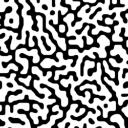Yahoo Answers is shutting down on May 4th, 2021 (Eastern Time) and beginning April 20th, 2021 (Eastern Time) the Yahoo Answers website will be in read-only mode. There will be no changes to other Yahoo properties or services, or your Yahoo account. You can find more information about the Yahoo Answers shutdown and how to download your data on this help page.
Trending News
Can a domain have more than one range?
2 Answers
- RaymondLv 74 years ago
The domain is the set of all values that can be used by a function, and for which the function will give a "well-defined" answer.
For example, for the function f(x) = 2x + 3
the domain is the whole set of real numbers, because it does not matter which number you use for x, the function will give you - for that number - one, and only one, clear answer.
However, in real numbers, a function like
f(x) = √x
will not give you a clear answer if x is negative.
Therefore, this THAT function, the domain can only include positive numbers.
----
It is possible that many functions share the same domain; the most common one being "all the real numbers " (from -infinity to +infinity)
For example the function
f(x) = x
is a simple function that works for all real numbers, and simply spits out the same value of x as you used for input.
In this case, the range (the set of all possible output values) is the same as the domain (the set of all possible input values).
The function
f(x) = x^2
is also a function that works for all real numbers.
Even when the number is negative (for example -5), the function will still give you one, and only one, clear answer:
f(=5) = (-5)^2 = +25
However, this function's range can only have positive numbers. When you square a value (whether it is positive or negative) the output is always positive.
This is an example of two functions that have the same domain, but different ranges.



